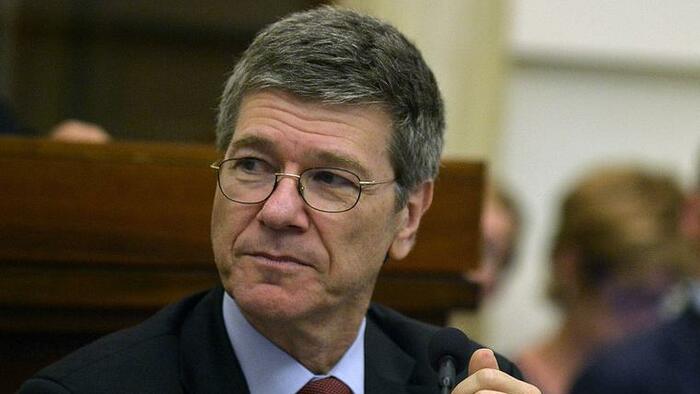


Economist and longtime adviser to the UN Jeffrey Sachs has issued a scathing critique of President Trump's decision to unleash yet more anti-Russia sanctions, giving Moscow just ten days to negotiate for peace with Ukraine or else the new punitive measures will go into effect.
Sachs called the new policy "dangerous" and a sign that the Trump administration is plagued by contradictions and lack of a coherent strategy for ending the war, despite constant early boasting that Trump would rapidly achieve peace. The 'secondary sanctions' aimed primarily at those nations still trading with Russia are doomed to be ineffective anyway, the Colombia University professor pointed out.
"If the sanctions are actually applied, they are an escalation of the conflict, and therefore very dangerous. I do not believe that they will be effective," he said in an interview with Russian media.
"For example, I do not believe they will stop Russia from selling oil, gas, and other commodities to Asian markets. Yet, provocations and escalation often have unpredictable negative effects, and that could be true here as well," he added.
The new restrictions are likely to backfire regardless, as they "could expose" the "incompetence" or even "accelerate the breakup" of US-led geopolitical and economic blocs.
"This is, in short, the wrong approach. We need diplomacy and negotiation to get to the root causes of the conflict, and solve them, not unworkable ultimatums based on the idea of an unconditional ceasefire," Sachs added.
He further highlighted the West's inability to acknowledge and come to terms with the real underlying causes of Ukraine war, such as historic NATO expansion east, the sham Minsk accords, or the coup events of 2014.
"Instead, the Western powers now demand an unconditional ceasefire. Russia will not agree to this, nor will a new round of US sanctions compel Russia to agree to this," Sachs emphasized.
But top Trump admin officials are defending the freshly issued ultimatum given to the Kremlin. For example, White House special envoy to Russia and Ukraine Keith Kellogg has claimed the relative ineffectiveness of current sanctions thus far has largely been due to weak enforcement from the West.
However, Kellogg has asserted that "Putin will start feeling the pressure not just from within his military, but also from the oligarchs and internally" and that the sanctions will "start to bite".
